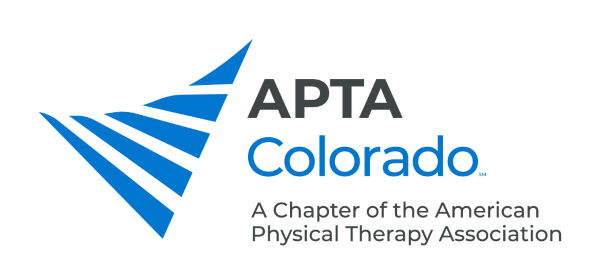Prior Authorization: 5 Ways CMS Changes Could Open up Future PossibilitiesAPTA The U.S. Centers for Medicare & Medicaid Services has proposed new requirements that would ease some of the administrative burdens of prior authorization across a range of federal programs including Medicare Advantage, state Medicaid and Children's Health Insurance Program fee-for-service plans, Medicaid managed care plans, CHIP managed care entities, and Qualified Health Plan issuers in the federal ACA insurance exchange. Those changes, if adopted, would make life easier for providers, including PTs, almost immediately after their 2024 startup date. But it’s broader than that. The proposed rules provide several opportunities for a more expansive conversation around prior authorization, transparency, and other aspects of administrative burden. That's yet another reason why it's crucial for APTA members and supporters to send comment letters to CMS by March 13. Here are five ways the proposed rules — and even the comment process — could help the profession gain ground in other longer-term, big picture areas. 1. More Data = a Stronger Case (as Long as PTs Are Diligent About Appeals) Under the proposed rules, prior authorization programs will be required to provide public data on their approval and denial rates, the rates at which they approve services after appeal, and average time frames for responding to prior authorization requests. Kate Gilliard, JD, APTA's director of health policy and payment, believes the increased transparency opens up some big opportunities. "The new data requirements could lead to a couple of important outcomes," Gilliard said. "First, prior authorization plans could feel compelled to make better decisions, given that those decisions will become public. Second, the data will likely show policymakers just how bad things are, which could prompt more rulemaking to rein in these plans." But, Gilliard points out, those changes aren't guaranteed — especially if providers are lax about pursuing denial appeals. "The bottom line is, if no one appeals, then insurance companies think denials are an easy win and will do them more," Gilliard said. "Appeals would bring inappropriate practices to light under the proposed rule, and they're also an administrative burden for the insurance companies, and they don't like being weighed down with extra paperwork anymore than providers do." 2. If It Looks Like a Denial and Quacks Like a Denial … The proposed rules' requirement for more public data has another upside: It could help to shed light on some plans' tendency to do an end run around what's effectively a denial by approving care for clearly insufficient durations and frequencies. Those micro-approvals in turn force PTs and other providers to make repeated requests for more care. APTA says it's time for a reality check. In its comments to CMS, the association is pressing the agency to define a denial as anything less than what is requested by the clinician. APTA also is urging individual commenters to include that perspective in their own letters. 3. Let's Level the Interoperability Playing Field CMS is proposing a new measure for clinicians to use in the Merit-based Incentive Payment System, or MIPS. Under the change, clinicians would be required to use electronic prior authorization to get MIPS credit under the Promoting Interoperability category, a category to which PTs don't have to report — yet. But CMS says that could change in 2024. The problem is that the requirements for compliance as they now stand aren't a good fit for PTs. To meet MIPS standards, clinicians have to use certified electronic health records technology. Unfortunately, CEHRT is designed for prescribing professionals and doesn't adequately capture tasks performed by nonphysician professionals using different types of EHRs. APTA is speaking up and urging its members to do the same in their comment letters on the proposed prior authorization rules: Tell CMS that if the agency intends to require PTs and nonphysician EHR vendors to fully participate in the interoperability parameters of MIPS, it needs to get everyone up to speed — either by lowering the CEHRT standards for nonphysicians or by providing funding for upgrades. 4. Prior Authorization Compliance Requirements Need Teeth Under the proposed rules, prior authorization plans would be required to respond to prior authorization requests within seven calendar days — a welcome change. The problem? There's no penalty for plans that exceed the time limit. "The only negative consequences for plans that don't meet prior authorization response deadlines is that they'll have to share that data publicly, but that's just not enough," Gilliard said. Instead, APTA has urged CMS to provide extra motivation for plans to comply: Mandate that plans approve any prior authorization request that doesn't receive a response within the required time frame. 5. It's Time to Think Big When It Comes to Admin Burden in Medicare Perhaps feeling like it's on a roll, CMS is asking whether it should create prior authorization rules for Medicare fee-for-service plans similar to what's currently proposed. While it's never a bad idea to evaluate the appropriateness of prior authorization, the fact is that most PTs don't face prior authorization requirements under Medicare FFS. Gilliard sees that an opportunity for the profession. "The conversation about prior authorization in Medicare is an excellent way for APTA and the profession to open up a bigger dialogue about administrative burden in all its forms," Gilliard said. "For PTs, prior authorization isn't the biggest challenge in traditional Medicare part B — it's the plan-of-care certification requirements. If CMS wants to look at prior authorization because it sees value in reducing administrative burden, this is another area worth looking at." APTA's comment tip: Tell CMS that you appreciate that the agency wants to make Medicare FFS less burdensome, but suggest that the agency broaden its focus. |


